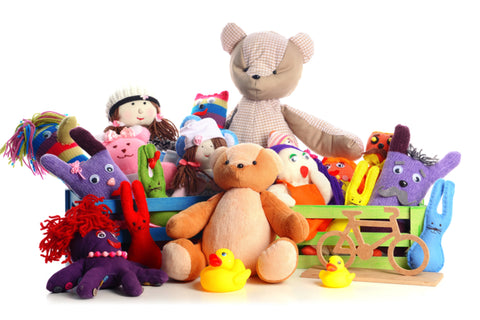Great Expectations
Blog · Dec 14, 2021

Whether it’s a birthday, a holiday, or just any day, kids develop over-the-top expectations, and who can blame them? We live in a world today where everyone posts about everything they have and the amazing things they’ve done. Who knew how momentous tucking into a bowl of cereal could be? Kids are bombarded by ads, pop-ups, and threads every hour on the hour. In the face of all of this greatness, it can be challenging to align your children’s expectations with reality.
Thanks… Now what?
Before we talk about how to manage children’s expectations, let’s be clear about why we should do it. When children are given everything they want, they miss the opportunity to be a kid. Setting your sights on something you want, something you may not be able to get, inspires creativity and pushes us to learn new things. As they say, necessity is the mother of invention. If children get every game or toy they ask for, they don’t have to use their imagination or creativity to entertain themselves. If we fulfill every want, they fail to appreciate what they have and don’t learn to work for what they want.
Children are more resilient than they get credit for. Once the shock of not receiving the newest digital toy for their birthday passes, imagination and creativity step in to find other ways to get one. It seems a bit old-fashioned, but earning the money to buy the device on their own by doing extra chores around the house, shoveling driveways in the neighborhood, or selling toys at a yard sale were and still are effective ways to get your hands on the latest whizbangery.
FOMO is one thing, but AMO is quite another. Actually missing out on the party “everyone else is going to,” can strike quite a blow, but they can come up with other things to do instead. Having friends over to play video games, plotting a memorable scavenger hunt for their friends, or spending the afternoon with a cup of fried rice to practice eating with chopsticks can provide hours of fun while they’re not at “The” party.
Wishing Well
To manage your child’s expectations, talk openly and honestly with them about their expectations. What do they really want and what do they expect it to do for them? Review the items on their list with them. Help them identify one or two things they really want. Making a wish list is free and easy, picking one or two things from it requires more work and a readiness to compromise. In the end, is the object of desire really that wonderful because a friend has it?
A lopsided birthday cake is a tragedy, a meltdown in real-time. Lopsided or not, it tastes just as sweet. Besides, what a great family memory it will be. A birthday party isn’t ruined by a crooked cake, but a gusher of tears can certainly put a damper on the fun.
Everyone Else Has One
Wanting what others have is a tradition that spans human existence. Before you jump in with, “If everyone else jumped off a bridge would you do it too?” give your children a reality check. The truth is not everyone has it, not everyone is doing it, and not everyone is going there. Simply telling your child, “No, not everyone has it” is a valid response to the expectation. This can also be a good opportunity to talk to your child about how rules and experiences are different in other households. Just because their friends are allowed to do something, doesn’t mean the same rules apply in your home.
Money Matters
Be honest with your children. Sit down with them and talk about how money works. Most everything costs money to have including electricity, internet service, water, clothes, food, etc. Explain that you have to make careful choices about how you spend money to support your household. What’s left over after the bills are paid is best spent on things of real value.
Talk to your children about the value of a dollar. They will have a better relationship with money as adults if they learn early on how to manage it and spend it on what really counts.
Value Added
Remind your children to focus on what they did get, the things they do have, and the activities they do get to do. Dwelling on the things we didn’t get, don’t have, or don’t get to do is rarely fulfilling. The human brain has a natural tendency to fixate on the negative, but a little effort and a positive outlook can address that. Help your children turn their frown upside down by asking them to name five positive things in their lives and look to the brighter side.
What Matters Most
Remember to keep your own expectations in check too. Don’t feel guilty for not meeting your child’s every whim. Remember, the best things you give your children are your love, your time, and firm boundaries, consistently. Teach your children to value time together over “things.” Things come and go, but family is forever.
It isn’t wrong to want things, and it isn’t wrong to expect great things from things or events. The trick is to align our expectations with the likely outcomes of acquiring these things or participating in these events. When prepared to evaluate the things we desire carefully, we make more satisfying decisions.